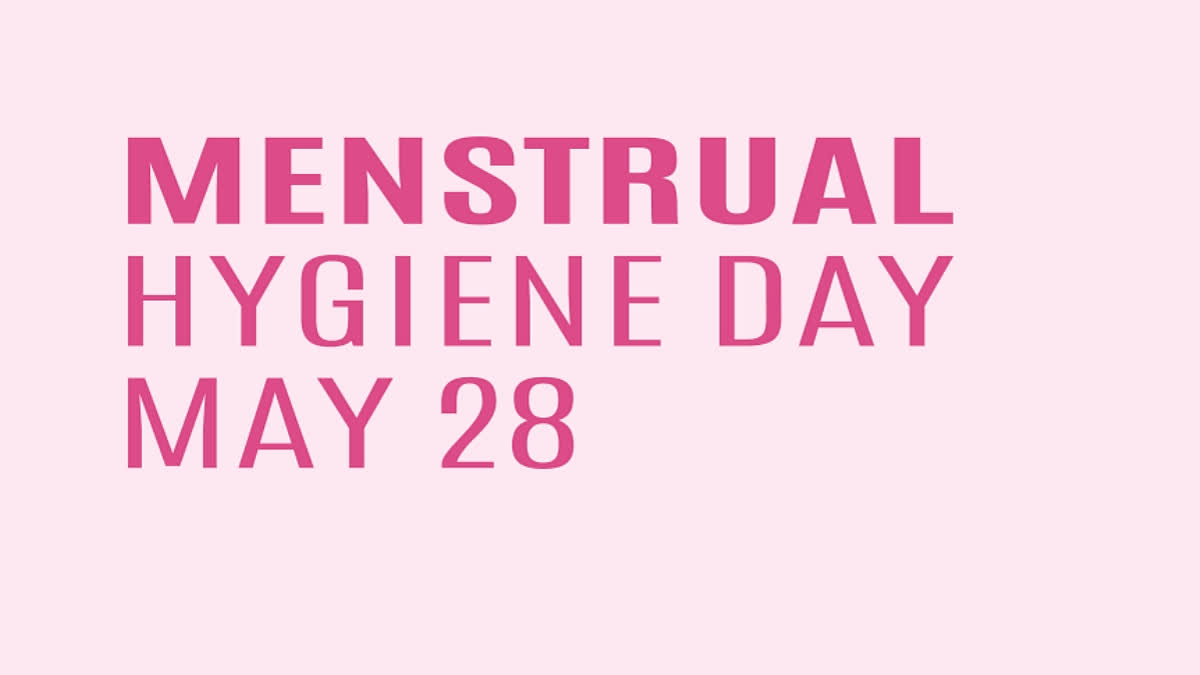New Delhi: With an aim to raise awareness of menstruation health, the appropriate use of menstrual products and sexual health issues and how they impact people's lives, Menstrual Hygiene Day is observed every year on May 28.
The day also highlights myths that mislead women who are menstruating and can lead to major health problems.
Theme & Significance:
The movement about menstrual hygiene was started in 2013 by a Germany-based NGO WASH United. Initially launched as a 28-day social media campaign to raise awareness about menstruation. However, a positive response led to the establishment of Menstrual Hygiene Day on May 28, 2014.
The theme of Menstrual Hygiene Day 2024 is 'Together for a Period Friendly World'. It is also believed that by observing Menstrual Hygiene Day, people will also overcome challenges associated with their periods.
Study on menstrual hygiene in India:
A study on menstrual hygiene practices conducted by Delhi's Maulana Azad Medical College has found that there is a high prevalence of myths, misconceptions and socially restrictive practices that continue to prevail among school-going adolescent girls in India.
According to the study, school teachers also lack proper awareness and knowledge of critical menstrual health issues which undermine the ability of their students to attain optimal menstrual hygiene management.
Talking to ETV Bharat, Dr Suneela Garg, Professor of Excellence, ex-Sub Dean Maulana Azad Medical College said that training of all teachers on the subject of menstrual hygiene management is particularly required as a part of the pedagogical process to ensure the transmission of accurate information and empowerment of adolescents for menstrual health promotion.
"Male teachers can be involved in sensitising adolescent boys regarding menarche and menstruation as a normal psychological process," she said.
During in-depth interaction with the teachers, it emerged that male teachers were apprehensive of discussing menstrual hygiene issues with their students, and often lacked correct knowledge of menstrual hygiene practices, she said.
Reports suggest that 71 per cent of adolescent girls in India remain unaware of menstruation till menarche, whereas 23 million girls drop out of school every year when they start menstruating and many of them end up facing acute health problems.
As per data from the Ministry of Health and Family Welfare, India has around 355 million menstruating women and girls, who face multilateral barriers to effective menstrual hygiene management due to various social and economic factors.
Quoting the study, Dr Garg said no consultations with formal health care providers were observed during the menstruation period by 84.6 per cent of participants in the study.
According to the study, 84.2 per cent of participants reported that a girl can not enter a temple or pray during menstruation. The study found that many of the participants can't enter into the kitchen or cook food during menstruation.
Challenges Regarding Menstruation
The issue of menstruation in India faces several challenges including lack of knowledge and awareness about menstruation. There is social stigma and taboos surrounding menstruation. What has further worsened the situation is the fact that there is limited access to sanitary products and proper menstrual hygiene resources. There are inadequate sanitation facilities, especially in schools and public places. There is a lack of privacy and suitable disposal methods for used sanitary products.
The World Health Organisation (WHO) said it was essential to recognise that menstrual health means access to information and education about it, menstrual products, as well as water and sanitation and disposal facilities, among other things.
Central government's initiative:
The Menstrual Hygiene Scheme was launched by the Ministry of Health and Family Welfare in 2011 aiming to promote menstrual hygiene among adolescent girls in the age group of 10-19 years in rural areas. The major objective of the scheme was to increase awareness among adolescent girls on menstrual hygiene, increase access to and use of high-quality sanitary napkins for adolescent girls in rural areas and ensure safe disposal of sanitary napkins in an environmentally friendly manner.
As per the existing guidelines of the Menstrual Hygiene Scheme, sanitary napkins continue to be sold to adolescent girls at Rs 6 per pack of six napkins.



